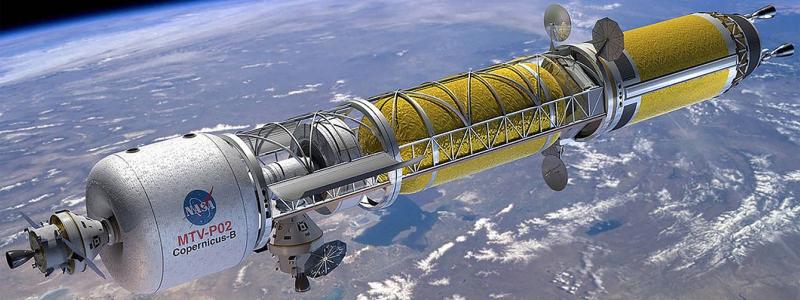In the realm of space exploration, the concept of Nuclear Propulsion Technology has always been both tantalizing and contentious. Recently, renewed interest from both military and NASA circles suggests that nuclear propulsion could soon become a reality rather than just a science fiction dream.

Historical Background of Nuclear Rockets
The idea of nuclear thermal rockets (NTRs) dates back to the mid-1950s with the inception of the Rover program by the US Air Force. Unlike traditional rockets that rely on chemical reactions for propulsion, NTRs utilize nuclear reactors to heat liquid hydrogen to extremely high temperatures. This superheated hydrogen is then expelled through a nozzle to generate thrust, achieving significantly higher efficiency compared to chemical rockets.
Advantages of Nuclear Propulsion
The primary advantage of NTRs lies in their fuel efficiency, quantified by a metric known as “specific impulse.” This measures how efficiently a rocket uses its propellant Nuclear Propulsion Technology . By eliminating the need for combustion, NTRs can utilize pure hydrogen, which has a lower molecular weight and thus provides higher specific impulse. This efficiency translates into longer missions and the ability to carry heavier payloads—a critical factor for deep space exploration.
Challenges and Technological Hurdles
Despite the promise of nuclear propulsion, there are substantial challenges to overcome. One major obstacle is the development of nuclear reactors that can operate effectively in space. Unlike terrestrial reactors, space-based reactors must withstand extreme temperatures and vibrations while remaining lightweight and compact.
Fuel and Material Considerations
The core of a nuclear reactor typically consists of uranium fuel rods, which undergo fission to produce energy. In space, these reactors must function at temperatures exceeding 3,000 Kelvin, far higher than ground-based reactors. This necessitates advanced materials that can withstand such intense heat without degradation.
Evolution of Nuclear Rocket Technology
The early concepts developed under programs like NERVA (Nuclear Engine for Rocket Vehicle Applications) laid the groundwork for current advancements in nuclear rocket technology. These initiatives, spearheaded by NASA and the Atomic Energy Commission (AEC), aimed to address the technical complexities of space-based nuclear reactors.
Recent Developments and Future Prospects
In recent years, advancements in materials science and reactor design have revitalized interest in nuclear propulsion. The prospect of faster interplanetary travel and enhanced mission capabilities has garnered support from both scientific and military communities. NASA’s continued research into nuclear thermal propulsion suggests that we may soon witness practical demonstrations of this technology.












